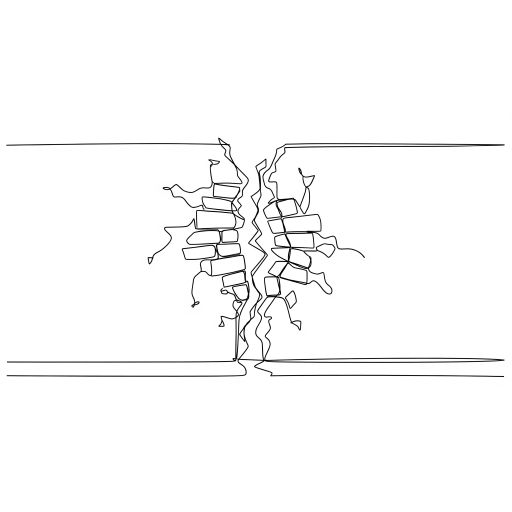Liberty Matters
Preserving Truth: Thoughts on Jonathan Blanks’s Discourse on David Boaz’ Views on the Misuse of History in Politics

On March 10, 2025, Wellesley College history Professor Ivan Kurilla, began a lecture at Brandeis University’s Center for German and European Studies by showing a clip of conservative mouthpiece Tucker Carlson’s interview with Russian President Vladimir. In this interview Carlson highlights how Putin used his own version of a shared history with Ukraine to justify Russia’s invasion of that nation. Kurilla is an expert on Russian history who previously taught at the European University at St Petersburg. The lecture was titled “The Use and Misuse of History in Russia and Everywhere Else.”
After a detailed discussion of how history and politics often intersect to evolve political views in a direction that aligns with the chosen narrative of those in power, Kurilla doubled back to Russia, observing how Putin used the collective memory of Russians fighting the Nazis during WWII as propaganda to rouse the ire of Russians against their neighbor with claims that Ukraine was a hotbed of Nazis in need of purging.
Robert Horvath, another specialist in Russian politics who plies his trade at Australia’s La Trobe University, would agree. Horvath wrote an entire book - Putin's Fascists: Russkii Obraz and the Politics of Managed Nationalism in Russia – on Putin’s ties with the neo-Nazi group Russkii Obraz and his utilization of them to stoke national sentiments in the early 2010s (it’s a fascinating, well-written analysis; I recommend it to anyone interested in the Russo-Ukrainian conflict, no matter which side of it they may fall on).
If it seems that in responding to Jonathan’s essay I am comparing the current Administration’s “removing the achievements of Black veterans like Jackie Robinson and the Navajo Codetalkers from Defense Department websites,” to an autocratic regime rewriting the history between itself and its neighbors to justify a war, then you have read this correctly.
As both David and Jonathan have pointed out, there is often among libertarians a tendency to gloss past the failures of our nation’s classical liberal antecedents to both venerate them with a sainthood that is unmerited, and to appeal to some Platonic ideal of a libertarian society which has never existed. This tendency sometimes exists even among libertarian/classical liberal scholars whom I greatly respect, much to my exasperation. In failing to recognize these flaws possessed by our predecessors, or to acknowledge the tragic, somewhat broken history of our march towards greater liberty and justice for all, we have opened the door for populist blowhards who appeal to the lowest impulses of large segments of our society to claim that regressive policies can “Make America Great Again.”
After all, how can the keepers of the flame of classical liberalism cry foul about discriminatory policies when our scholars opine that the apex of freedom in America was a time in which my forebears were chattel, or indigenous peoples were forced onto the Trail of Tears, or women couldn’t vote, own property or pursue education. But taxes were lower! The EPA didn’t exist! Small comfort to those who were disabused of the most basic natural rights.
This is why the conversations like those between David and Jacob Hornberger that Jonathan references in discussing David’s caution against lionizing the Founding Fathers are quite salient. History, or rather, the parties who write or rewrite history, have a huge impact on the institutional and collective memory of a nation. While the old adage “history is written by the victors” isn’t completely accurate, it’s not all that far off. Our concept of history often even changes our belief about who the victors were. Why acknowledge that Russia was born of the collapse of the Ancient Rus empire that was centered around Kiev (modern-day Ukraine)? Perhaps so you can change the perception of that history to create a narrative of a historical Ukraine that was always dominated by Russia.
Why face the sins of America’s past to continue building a freer society when we can ennoble them and create a more autocratic one? As Boaz noted in The Politics of Freedom, “In a free society, citizens don’t turn to the national government to solve every problem. Indeed, a free society is measured by the amount of life that remains outside the control of government.” This has been the foundation of America, however imperfect, since the Revolution, warts and all. If we continue to allow – and contribute to – the misuse of history in setting the political narrative, we may indeed be dooming our descendants to a belief that autocracy was always the way of America, and worse, that it is actually liberty.
Copyright and Fair Use Statement
“Liberty Matters” is the copyright of Liberty Fund, Inc. This material is put on line to further the educational goals of Liberty Fund, Inc. These essays and responses may be quoted and otherwise used under “fair use” provisions for educational and academic purposes. To reprint these essays in course booklets requires the prior permission of Liberty Fund, Inc. Please contact oll@libertyfund.org if you have any questions.